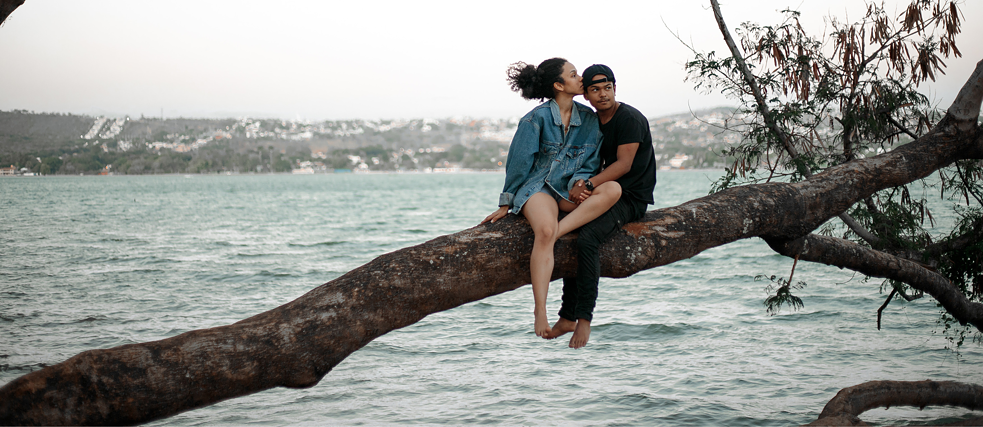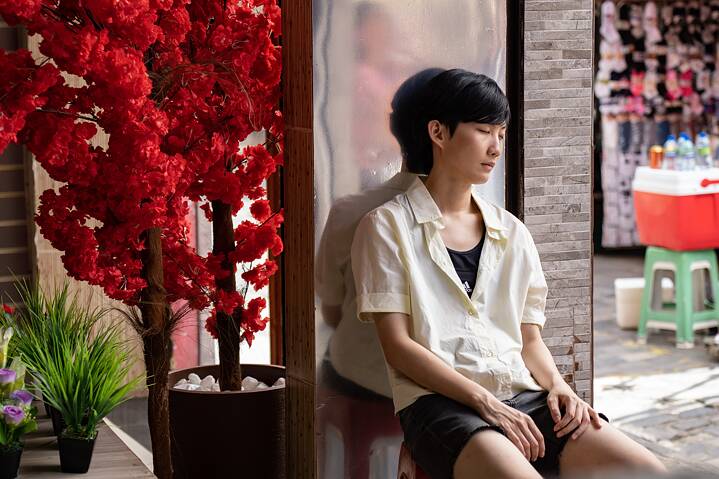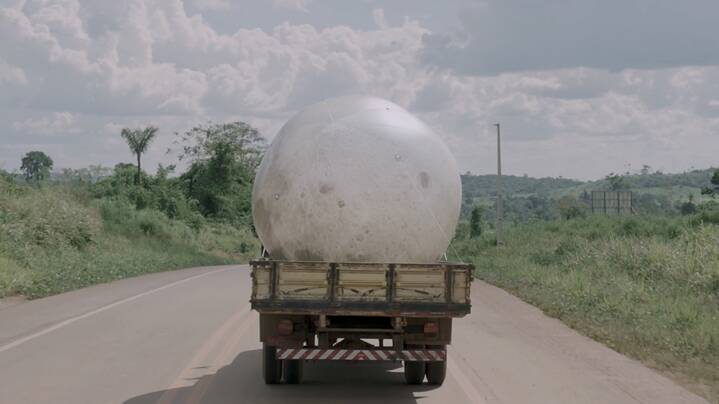Berlinale Bloggers 2024
Between dreams and reality

The 74th Berlin International Film Festival showcases the diversity of Brazil’s regions. New beginnings and the search for a better life are recurring motifs in the films that were made after the pandemic. They reflect social conditions and the political situation in the country.
By Camila Gonzatto
In Betânia, director Marcelo Botta’s first full-length film, the protagonist tries to build a new life after the death of her husband. The dreams of three generations – grandmother Betânia, her daughters and grandchildren – are reflected in the everyday lives of a small community in northeastern Brazil. Shot entirely on location in the coastal region of Lençóis Maranhenses in times of both flooding and drought, the film highlights the problems of the local population, but it also portrays its protagonists attending local festivities such as Meu Boi Bumbá, with traditional round dances and contemporary reggae remixes.

“Betânia“. Brazil 2024. Director: Marcelo Botta. With Rosa Ewerton Jara, Diana Mattos, Nádia D’Cássia. Berlinale Panorama 2024 | Photo (detail): © Felipe Larozza / Salvatore Filmes
The film also looks at pressing environmental issues in this region: the waste that is dumped into the ocean, for example, or the consequences of climate change generally. Actor Diana Mattos’ very intimate, candid portrayal of the protagonist Betânia is a highlight of the film, its cast consisting entirely of local actors.
The flip side of the picturesque postcard
The Brazilian-Argentinean-Taiwanese-German co-production Dormir de olhos abertos (Sleep With Your Eyes Open) by German director Nele Wohlatz, which is featured in the Encounters competition, is a subtle, quiet tale about Chinese immigrants searching for new opportunities in the Brazilian city of Recife. Through a Taiwanese tourist who arrives there and gradually comes into contact with a local Chinese community, we learn about the volatile living conditions of the illegal workers, a stark contrast to the lives of their affluent Chinese employers.
“Sleep with Your Eyes Open“. Brazil/Taiwan/Argentina/Germany, 2024. Director: Nele Wohlatz. With Chen Xiao Xin. Berlinale Encounters 2024 | Photo (detail): © Victor Juca
Beyond financial hardship and exploitation, the film reveals the discrimination and sense of displacement experienced by the characters, all of them grappling with the challenges of being so far from home. The film operates on two narrative levels: the experiences of the tourist in Recife, and the story of a Chinese girl who writes about her life in the city on the back of postcards. The stories gradually start to interweave. Mixing Portuguese, Mandarin and Spanish, the film presents a clear picture of what it means to not belong and navigating unfamiliar cultural landscapes.
Racism, hopelessness, police violence
Also set in a major city – Belo Horizonte – Caroline Cavalcanti’s short film Lapso (Lapse), which is featured in the Generation 14plus programme, tells the story of Bel and Juliano, two youngsters from the city’s urban periphery who are doing community service in a library. Bel communicates in sign language, gives private tuition and is a skater, while Juliano loves rap and is searching his true calling in life. By offering glimpses into the everyday lives of the two characters, the film highlights the difficulties young black people face in the outer suburbs of Brazilian cities: racism, hopelessness and police violence all loom large. Despite its violent background, Lapso is a tender film that celebrates love and solidarity, even if the story offers its protagonists no illusions of a brighter future.Amazonia: devastation and destruction
The idea of building a country of the future led to the construction of the east-west Trans-Amazonian highway that cuts through the Amazon forest. Featured in the Forum Expanded programme, Janaina Wagner’s Quebrante takes us on a journey through Amazonia – along windy roads, past ghost towns and small settlements. The desolation and devastating effects of deforestation are in evidence everywhere.
“Quebrante“. Brazil 2024. Director: Janaina Wagner. Berlinale Forum Expanded 2024 | Photo (detail): © Janaina Wagner
The artist interweaves nature scenes of rock formations and ancient caves with celestial bodies and the moon as an allusion to the beginnings of cinema. One scene recalls Georges Méliès’ Journey to the Moon (1902). Quebrante prompts feelings of melancholy and longing – not only because it depicts the destruction of the region, but also because it reminds us what is left of the failed dream of comprehensive development.